Safest Places in Nigeria for Solo Female Travelers
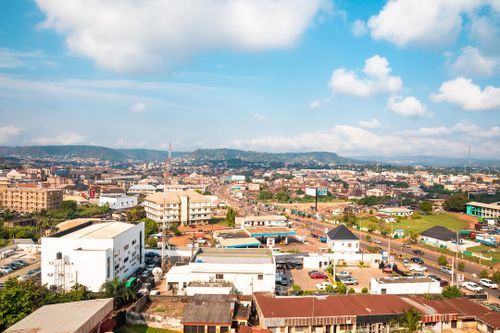
1, Enugu
Enugu, often referred to as the coal city, is located in the southeastern part of Nigeria, set at the foot of Udi Plateau. Renowned for its neat roadside landscaping and lush greenery, this thriving city is the epitome of Nigerian friendliness and hospitality. Enugu is famous for its significant coal mining history, yet its vibrant contemporary attractions like the Aso Rock, Nike Lake, Ngwo Pine Forest and the wellspring of local culture at the Ezeagu tourist complex also juxtapose itself for tourist's delight. As the socio-cultural melting pot of the Igbo tribe, Enugu embodies a rich tapestry of Nigerian artistry accentuated by the local markets like Ogbete, Artisan and New market, known for traditional crafts, fabrics, and delicious local cuisines.

2, Oshogbo
Situated in the heart of Nigeria, the culturally rich city of Oshogbo is a melting pot of tradition and arts. It is known worldwide for its annual Osun-Oshogbo festival which brings together thousands of spectators who enjoy the display of colorful costumes, energetic dance performances, and pulsating drum beats. Recognized as a UNESCO World Heritage site, the sacred Osun grove in Oshogbo is a significant spiritual and artistic hub, boasting of many shrines, sculptures, and artworks by renowned artists. The city's vibrant markets, teeming with local crafts, textiles, and exotic fruits add further charm to this African gem. Thus, Oshogbo offers an immersive experience to its visitors, combining history, spirituality, and local flair in generous measures.

3, Akure
Located in the southwestern part of Nigeria, Akure is the beautiful and vibrant capital city of Ondo State. Known for its rich cultural heritage and tropical climate, the city is famed for a myriad of interesting attractions. Akure boasts of the popular Deji of Akure Palace, a historical site that captures the essence of traditional African royalty. The city is also home to the renowned Federal University of Technology, conferring it with a youthful, energetic vibe. The Owo Museum, housing significant ancient artworks and artefacts, is a must-see for lovers of history and art, while the Ebomi Lake Tourist Centre provides blissful scenery and relaxation. Traditional events such as the Ijapo Estate Carnival further enhance Akure's reputation as a cultural hub. This captivating city provides a warm glance into the heart of Yoruba culture in Nigeria.
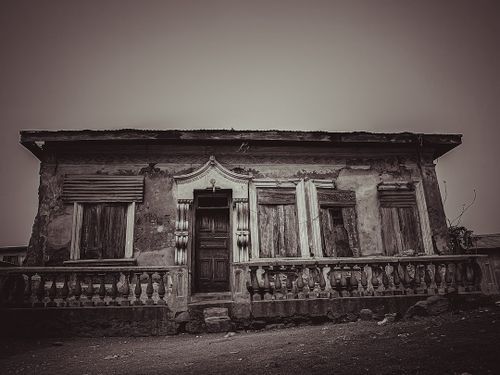
4, Abeokuta
Abeokuta, located in south-western Nigeria, is a captivating city steeped in history and culture. As the largest city and capital of Ogun State, it's known as the home of the Ake Palace and Olumo Rock, a popular tourist destination with intriguing tunnels and historical sculptures. Named "Refuge Among Rocks", Abeokuta was historically a haven from slave-trade captors. The city boasts a plethora of indigenous and colonial architecture, vivid markets offering local crafts, and a blend of culinary delights. Its tranquil surroundings and enriching cultural heritage have long been a source of fascination for both local and international tourists.

5, Lekki
Lekki, Nigeria, located on the southeastern edge of the dynamic and bustling city of Lagos, is a casually sophisticated blend of culture and commercialism. Known for its beautiful beaches such as Elegushi Royal Beach and Santa Cruz Beach, it is a favored destination for locals and tourists alike. Lekki also harmonizes old and new with its iconic Lekki Conservation Centre for wildlife, the Nike Art Centre showcasing African art, and the contemporary Lekki Market where you can haggle for local crafts, clothing, and fresh produce. In addition, the thriving nightlife, which erupts from its many beach resorts, cocktail lounges, and clubs, further adds to the attraction of Lekki as a must-visit destination.

6, Uyo
Located in the southern part of Nigeria, Uyo serves as the capital city of Akwa Ibom State. It is renowned for its warm tropical climate, which makes it a comfortable destination all year round. Uyo is widely appreciated for its impressive infrastructure and clean environment -- offering a unique blend of urbanization amidst a rich cultural heritage. With a variety of attractions ranging from the Ibom Tropicana Entertainment Centre, featuring a movie theater and a water park, the entrancing National Museum of Colonial History, the Le Meridien Ibom Hotel and Golf resort for golf enthusiasts, to the lush greenery of the 6,000-seater Godswill Akpabio International Stadium, Uyo offers plenty to satisfy the discerning traveler. Its vibrant markets, traditional restaurants serving local Nigerian delicacies, and warm, friendly locals ensure that a visit to Uyo is a unique and unforgettable African experience.
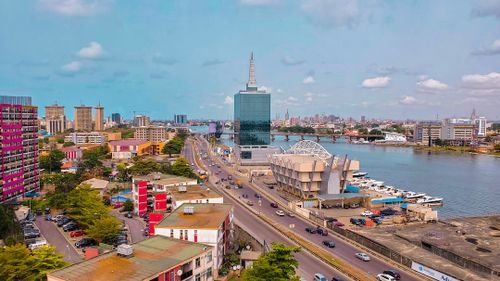
7, Lagos
Located on the southwestern coast of Nigeria, Lagos is an incredibly vibrant and pulsating city known for its teeming population and rich cultural heritage. This dynamic metropolis, brimming with life is not only the largest city in Nigeria but also the largest on the African continent. Characterised by its bustling markets, booming music scene and a stunning array of impressive artwork, Lagos is the home to Africa's world-class film industry – Nollywood. The city is blessed with an abundance of natural beauty, such as the stunning Lekki Conservation Centre, beautiful landscapes, and a wide array of beaches that are perfect for relaxation. Additionally, attractions like the Lagos National Museum, filled with national treasures and artifacts, Freedom Park, a symbol of the nation's history, and Tafawa Balewa Square, a national monument, offers a captivating insight into the history and future of Nigeria.
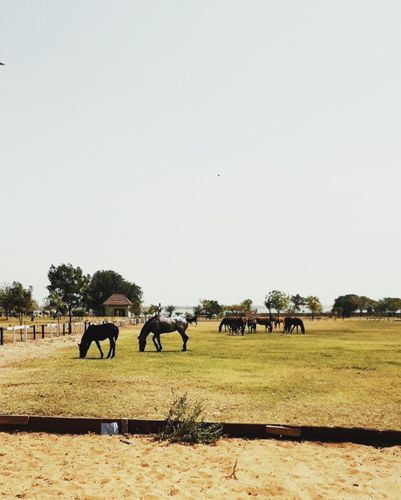
8, Kano
Kano, located in the northern part of Nigeria and revered as the country's second most populous city, is rich in a history that dates back to the 7th century. The city is renowned for its dazzling traditional arts and crafts, with particular interest including indigo-dyed cloth known as Adire, traditional weaving, beautiful embroidery, and pottery. A must-visit is the impressive Emir’s Palace, a significant symbol of culture and a hub of historical narratives. Another unique highlight when discovering Kano is the bustling Kurmi Market which dates back to the 15th-century, offering an authentic African market experience. The magnificent Kano City Wall, an ancient defensive structure showing off the city's historical significance, and the Kano State Zoological Garden, home to a variety of local species, are among the city's worthy attractions. Visitors to Kano will delight in immersive glimpses of the vibrant colours, sights, and sounds of Nigeria.

9, Kaduna
Kaduna, the fourth largest city, is located in the Northwestern part of Nigeria. It is renowned for its vibrant culture and historical prominence. The city earned its reputation as the industrial center of Northern Nigeria, with a cluster of manufacturing industries and rail transport. Kaduna is also home to the astonishing Kaduna National Museum, showcasing Nigeria's fascinating heritage, and the Arewa House Museum that records the Northern Nigerian history. The city's striking landscape is adorned by the magnificent Kaduna River, where visitors can indulge in exciting activities like fishing or simply enjoy the serene ambiance. This city also hosts the yearly Durbar Festival, drawing individuals from all over to witness the colourful cultural spectacle. Overall, Kaduna offers unique blends of history, culture, and urbanization.
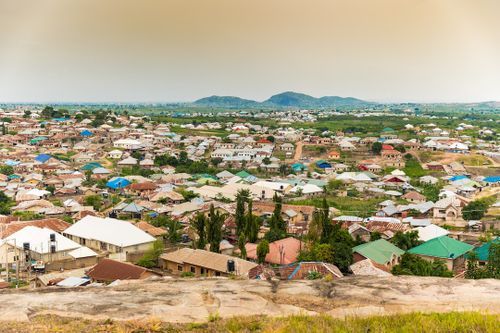
10, Abuja
Abuja, the booming capital city of Nigeria, is neatly tucked into the heart of the country within the Federal Capital Territory. Distinguished for its magnificent Aso Rock, a grandiose monolith edging the city, Abuja is a testament to modern Nigerian ambitions and achievements. It's well-known for its captivating Nigerian architecture, especially the iconic National Mosque and the National Christian Centre that command attention with their grandeur. The city is also home to the lush Millennium Park, the largest of its kind in Abuja, offering a breath-taking escape from urban buzz. Abu Dhabi's neatly organized and traffic-free roads are a dream for local and international visitors alike, making it a bright and bustling testament to Nigeria's progress.

11, Awka
Located in the heart of Eastern Nigeria, Awka is the capital city of Anambra State. Known for its rich cultural heritage, Awka is a vibrant and dynamic city filled with captivating sites, traditional festivals, bustling markets, and an energetic nightlife. It's home to the prestigious Nnamdi Azikiwe University, making it a hub for academic excellence. The city is also renowned for blacksmith activities and innovative artisans. Notably, Awka boasts of the popular Eze Iroko statute, a monument that pays tribute to its blacksmith roots. With its unique blend of modernity and tradition, Awka presents a fascinating destination for those interested in experiencing the heartbeat of Nigeria's Igbo culture.

12, Asaba
Asaba is a vibrant city located in the southeastern part of Nigeria. This bustling metropolis serves as the capital of Delta State and it's situated on the western edge of the majestic Niger River. This pivotal location allows it to feature a breathtaking blend of cultural heritage and natural beauty. The city is renowned for its magnificent scenery including the resplendent Niger River and the expansive Niger Bridge. It also boasts of rich cultural heritage displayed during local festivals like the Ine and the annual fishing festivals. Key historical attractions also abound, like the captivating Asaba massacre memorial site. The city's warmth goes beyond its tropical climate, as the friendly, hospitable locals provide a welcoming atmosphere to all visitors.
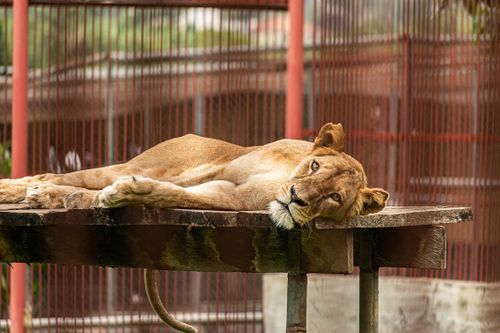
13, Ilorin
Situated in west-central Nigeria, Ilorin is known as a culturally diverse and historic city steeped in tradition. As the capital of Kwara State, Ilorin acts as a melting pot which beautifully blends elements of various Nigerian tribes leading to an intriguing tapestry of culture and lifestyle. The city along the Awon River is renowned for its charming tourist attractions such as the compelling Emir's Palace, vibrant Dada Pottery, the effervescent Ogunjokoro, and the Ilorin Central Mosque - a stunning architecture that overlooks the city. Ilorin also boasts a reputable education hub, housing the University of Ilorin, a top-ranked Nigerian institution. The city's unique allure lies in the charming blend of old traditions with modernities, offering visitors a chance to discover the real Nigeria.
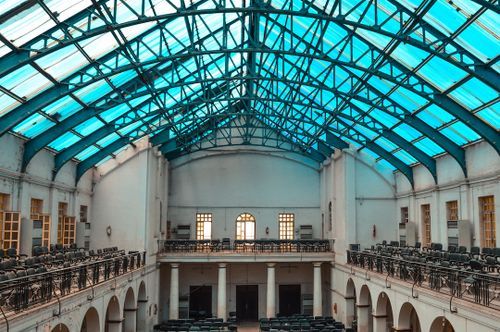
14, Ibadan
Ibadan, located in the southwestern part of Nigeria, is the third largest metropolitan area by population in the country. Known for its rich history and cultural heritage, Ibadan is home to the University of Ibadan, the oldest university in Nigeria, as well as several notable landmarks including Cocoa House, the first skyscraper in West Africa, the national museum with significant archaeological and ethnographic exhibits, and the bustling Bodija market. Adventurers can explore the expansive IITA forest reserve, brimming with diverse animal and plant species. From indigenous arts and crafts to local cuisine, Ibadan offers a vibrant, colorful blend of traditional and cosmopolitan African experiences.
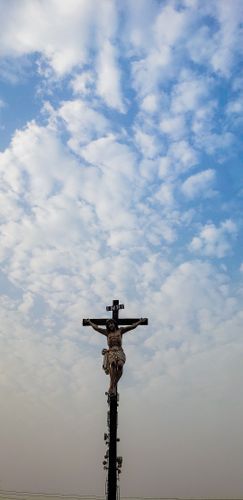
15, Benin City
Nestled in the heart of southern Nigeria, the vibrant city of Benin is the capital of Edo State and is steeped in a rich tapestry of cultural heritage and natural splendors. Known for its unique bronze artwork that dates back to medieval times, Benin City prides itself on its recognition by UNESCO for its cultural value. Notable landmarks include the monumental Benin Moat (also known as Iya) that traces back to the pre-colonial era, and the splendid Benin National Museum housing a vast collection of artifacts. Strolling down the city streets, visitors can experience the traditional culture in the obas' palaces and appreciate the well-preserved history and picturesque charm of the city. Despite the constant bustling atmosphere, Benin City's welcoming ambiance makes it one of Nigeria's must-visit tourist destinations.








